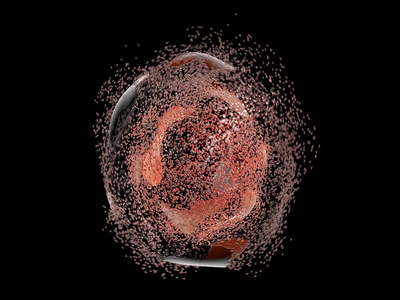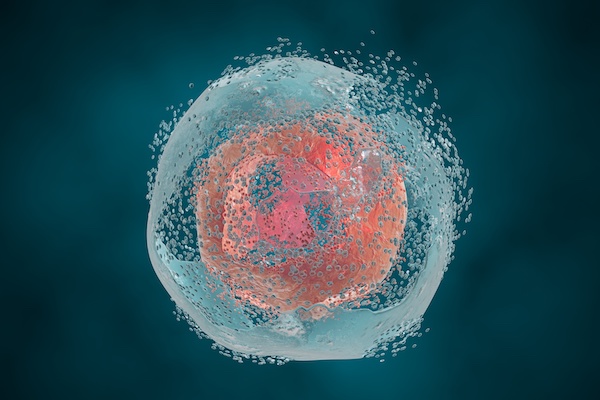 Although the phenomenon of cell death had been known for centuries, even briefly described in the 19th century, the explosion of research and technology in the latter half of the 20th century led to greater and more nuanced discoveries that have provided insights into many physiological processes including tissue development, maintenance, metabolism, and disease states including cancer. The many accomplishments in programmed cell death research have improved our understanding and development of targeted therapeutics, and some of these milestones were recognized by Nobel Prizes for apoptosis and autophagy. As scientists continue to elucidate new cell death pathways and their interplay with other pathways, let's take a look at what we know so far and what new findings have come out.
Although the phenomenon of cell death had been known for centuries, even briefly described in the 19th century, the explosion of research and technology in the latter half of the 20th century led to greater and more nuanced discoveries that have provided insights into many physiological processes including tissue development, maintenance, metabolism, and disease states including cancer. The many accomplishments in programmed cell death research have improved our understanding and development of targeted therapeutics, and some of these milestones were recognized by Nobel Prizes for apoptosis and autophagy. As scientists continue to elucidate new cell death pathways and their interplay with other pathways, let's take a look at what we know so far and what new findings have come out.
A Brief Review of Programmed Cell Death
By now, most of you are at least somewhat familiar with programmed cell death (PCD) pathways, especially as their study is most likely conducted if you are in most types of cell biology labs! Per market reports, PCD pathways, most notably apoptosis, are highly serviced by the bioreagent industry, with apoptosis assays comprising approximately $4.6 billion in 2023 with projected growth to over $11 billion in ten years time. Studying the various PCD mechanisms requires a diverse blend of antibodies, proteins, molecular biology, and specialized equipment including flow cytometers, so it is important to become a well-rounded experimentalist to fully grasp these fundamental mechanisms.
We have written many blogs in the past that help you appreciate a deeper understanding of each known PCD pathway, and these include:
- Apoptosis, a controlled mechanism to eliminate cells in normal physiological processes such as embryonic development and immune clearance;
- Autophagy, an evolutionarily conserved process that allows cells to recycle unneeded and damaged cellular components;
- Pyroptosis, a specialized PCD pathway dependent on caspases and gasdermins that involves the inflammasome;
- Ferroptosis, an iron-dependent PCD mechanism that could be modulated by redox homeostasis, lipid metabolism, or mitochondrial action;
- Necroptosis, an inflammatory PCD pathway that can be activated when the other pathways cannot be initiated.
In addition to these PCD pathways, you can learn more about the vesicular transport system which is important in maintaining normal functions including proper autophagy, and trace elements such as selenium which is crucial to ferroptosis.
ABclonal's Contributions to PCD Research
![]() ABclonal is pleased to be a part of thousands of scientific studies regarding PCD pathways and their implications in health and disease. In 2024 alone, Pubmed searches revealed at least 470 articles to date using ABclonal's various Bcl family products, and thousands more by a wide range of ABclonal customers across the globe were able to publish using our other antibodies, proteins, and molecular enzyme products.
ABclonal is pleased to be a part of thousands of scientific studies regarding PCD pathways and their implications in health and disease. In 2024 alone, Pubmed searches revealed at least 470 articles to date using ABclonal's various Bcl family products, and thousands more by a wide range of ABclonal customers across the globe were able to publish using our other antibodies, proteins, and molecular enzyme products.
In one particular study, a collaboration between scientists in China, Saudi Arabia, South Korea, and UC Riverside, the authors were exploring the biology of chondrocytes, cells that are important to the maintenance and repair of cartilage. The motivation behind this curiosity is because chondrocytes are associated with joint diseases such as arthritis, where chondrocyte apoptosis is dysregulated. Thanks in large part to ABclonal's primary and secondary antibodies for PCD research, the study showed that targeting Bcl-2 could be a viable treatment for chondrocyte-related conditions, along with treatment with a natural plant compound called chlorogenic acid. Incidentally, you can also learn about natural compounds to fight disease here, along with a listen of our BioChat episode with a friend of mine who studies various natural compounds in the fight against cancer and other ailments!
In another study from our customers in China, they aimed to explore poor prognosis in thyroid cancers. Following reports that the downregulation of glutathione peroxidase 4 (GPX4), a selenoprotein often associated with ferroptosis, could induce apoptosis in gliomas and breast cancer cells, the authors explored whether the same could be true for thyroid cancer. Examining the expression levels of GPX4 and another marker, FKBP8, they concluded that these two proteins could be potentially useful prognostic biomarkers for thyroid cancer patients, and also demonstrated that GPX4 could be targeted to suppress thyroid cancer growth.
How ABclonal Can Help
ABclonal is honored to continue working with and supporting passionate scientists like you in further dissecting PCD pathways and their implications in health and disease. Our product lines are validated by researchers in scientific publications like the ones described above, including our flagship Bcl-2 and GPX4 rabbit monoclonal antibodies. We hope you are inspired to continue adding to our global knowledge base, and feel free to contact us at service@abclonal.com for any additional assistance and guidance to accelerate your research!




